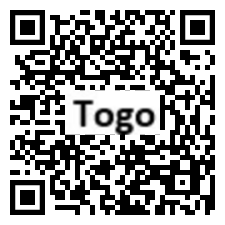Introduction
Background
From the 11th to the 16th centuries, various ethnic groups settled the Togo region. After World War I, colonial rule over Togo was transferred from Germany to France. French Togoland became Togo upon independence in 1960.
Geography
Area
total: 56,785 sq km
land: 54,385 sq km
water: 2,400 sq km
Climate
tropical; hot, humid in south; semiarid in north
Natural resources
phosphates, limestone, marble, arable land
People and Society
Population
8,703,961 (2023 est.)
Ethnic groups
Adja-Ewe/Mina 42.4%, Kabye/Tem 25.9%, Para-Gourma/Akan 17.1%, Akposso/Akebu 4.1%, Ana-Ife 3.2%, other Togolese 1.7%, foreigners 5.2%, no response 0.4% (2013-14 est.)
Languages
French (official, the language of commerce), Ewe and Mina (the two major African languages in the south), Kabye (sometimes spelled Kabiye) and Dagomba (the two major African languages in the north)
Religions
Christian 42.3%, folk religion 36.9%, Muslim 14%, Hindu <1%, Buddhist <1%, Jewish <1%, other <1%, none 6.2% (2020 est.)
Population growth rate
2.45% (2023 est.)
Government
Government type
presidential republic
Capital
name: Lome
Executive branch
chief of state: President Faure GNASSINGBE (since 4 May 2005)
head of government: Prime Minister Victoire Tomegah DOGBE (since 28 September 2020)
Legislative branch
description: unicameral National Assembly or Assemblee Nationale (91 seats; members directly elected in multi-seat constituencies by closed, party-list proportional representation vote to serve 5-year terms); party lists are required to contain equal numbers of men and women
Economy
Economic overview
low-income West African economy; primarily agrarian economy; has a deep-water port; growing international shipping locale; improving privatization and public budgeting transparency; key phosphate mining industry; extremely high rural poverty
Real GDP (purchasing power parity)
$18.369 billion (2021 est.)
$17.451 billion (2020 est.)
$17.15 billion (2019 est.)
Real GDP per capita
$2,100 (2021 est.)
$2,100 (2020 est.)
$2,100 (2019 est.)
Agricultural products
cassava, maize, yams, sorghum, beans, oil palm fruit, rice, vegetables, cotton, groundnuts
Industries
phosphate mining, agricultural processing, cement, handicrafts, textiles, beverages
Remittances
8.59% of GDP (2020 est.)
7.04% of GDP (2019 est.)
6.34% of GDP (2018 est.)
Exports
$1.722 billion (2020 est.)
$1.665 billion (2019 est.)
$1.703 billion (2018 est.)
Exports - partners
India 16%, Benin 15%, Burkina Faso 6%, France 6%, Morocco 5% (2019)
Exports - commodities
refined petroleum, crude petroleum, electricity, calcium phosphates, cotton (2019)
Imports
$2.389 billion (2020 est.)
$2.261 billion (2019 est.)
$2.329 billion (2018 est.)
Imports - partners
China 18%, South Korea 13%, India 11%, Belgium 10%, Netherlands 8%, United States 5% (2019)
Imports - commodities
refined petroleum, motorcycles, crude petroleum, rice, broadcasting equipment (2019)
Exchange rates
Communaute Financiere Africaine francs (XOF) per US dollar -
Exchange rates:
554.531 (2021 est.)
575.586 (2020 est.)
585.911 (2019 est.)
555.446 (2018 est.)
580.657 (2017 est.)
Page last updated: Tuesday, December 19, 2023
